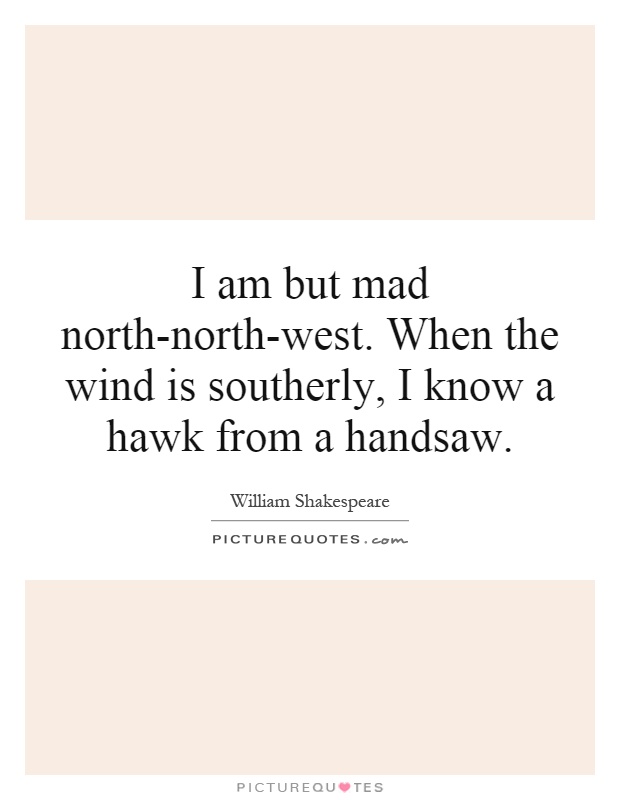I am but mad north-north-west. When the wind is southerly, I know a hawk from a handsaw

I am but mad north-north-west. When the wind is southerly, I know a hawk from a handsaw
In William Shakespeare's play Hamlet, the character of Hamlet utters the famous line, "I am but mad north-north-west. When the wind is southerly, I know a hawk from a handsaw." This line is spoken by Hamlet in Act 2, Scene 2, during a conversation with Rosencrantz and Guildenstern.The context of this line is important in understanding Hamlet's state of mind and his approach to the world around him. Throughout the play, Hamlet is struggling with his own sanity and trying to make sense of the events that have unfolded in his life. This line reflects Hamlet's awareness of his own madness and his ability to see things clearly when the circumstances are right.
The phrase "mad north-north-west" is a reference to the direction of the wind, which is often associated with madness and confusion. Hamlet acknowledges that he may appear mad to others, but he is aware of his own mental state and can distinguish between reality and illusion. When the wind is southerly, Hamlet claims that he can see things clearly and differentiate between a hawk and a handsaw.
The comparison between a hawk and a handsaw is significant in this context. A hawk is a bird of prey known for its keen eyesight and ability to hunt with precision. In contrast, a handsaw is a tool used for cutting wood, which requires a steady hand and a clear mind. By stating that he can distinguish between a hawk and a handsaw, Hamlet is asserting his own ability to see through the madness and confusion that surrounds him.
Overall, this line from Hamlet reflects the complexity of the character and his struggle to navigate the world around him. Despite his apparent madness, Hamlet is able to maintain a sense of clarity and insight that sets him apart from those around him. This line serves as a reminder of Hamlet's intelligence and self-awareness, even in the midst of his own turmoil.












 Friendship Quotes
Friendship Quotes Love Quotes
Love Quotes Life Quotes
Life Quotes Funny Quotes
Funny Quotes Motivational Quotes
Motivational Quotes Inspirational Quotes
Inspirational Quotes